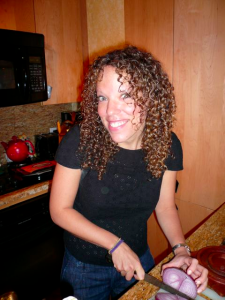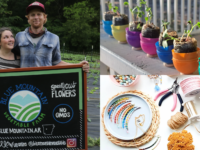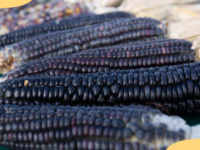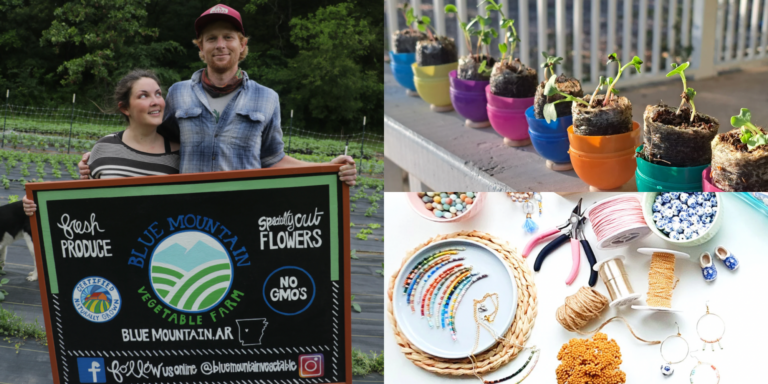
What you are doing is amazing…
Who are you?
Jerusha Klemperer
What do you do?
I am the Communications Director for FoodCorps.
Where are you from?
I am from New York City, less than a quarter mile away from FoodCorps headquarters.
What was your favorite meal growing up?
My favorite meal was a version of chicken chow fun that my dad used to make. My dad taught himself to make a version of it and it was absolutely, hands down, my favorite thing to eat.
What would we find in your fridge right now?
Right now you would find bits and pieces from my CSA share and also a lot fish from my community supported fishery. And sun tea that my boyfriend made up on the roof.
Why did you start FoodCorps?
I think the 6 of us all started it for similar reasons but we came at it from different perspectives. Through my work at an organization called Slow Food USA, I had developed a campaign to engage everyday people around the country in reauthorization of the Child Nutrition Act, which governs The National School Lunch Program. In the process I had to learn a lot about it. And I learned just enough to know that I wanted to be a part of the solution; that if we were going to be feeding kids lunch in public schools that it needed to be better than the broken food system outside the school.
How did you start it?
A really important part of the “how” was the collaborative process. The six of us who were co-founders drew upon all of the knowledge and resources of the people and organizations we knew. We tapped into the networks we were a part of through the organizations we worked for and the people we had met through our various jobs and asked ourselves, “How can we tap into the knowledge base of this huge network of people and come up with a solution?”
Did you all know each other before?
We didn’t all know each other but we each knew a couple of others in the group. And the very first conversations happened at a Kellogg gathering that four of the six of us were at. The Kellogg Foundation was our very first funder and continues to be one of our major funders.
What are your responsibilities as the Communications Director?
In the Communications Department, we are in charge of the website; social media (Syed’s really the awesome executor of all that); email communications that go out on behalf of FoodCorps; training service members and providing them, host sites, service sites and our board with materials to speak knowledgeably about FoodCorps; online fundraising; communication with the press…We are also responsible for…you know what, I think that covers the bulk of things.
Wow.
It’s a lot, right? But we really see ourselves as the storytelling department. We are gathering stories from you guys and we’re helping to push them out to the world in various ways through different outlets.
What do you like most about your job?
You know, I love so many things about my job, but I would say getting into the field and seeing service members do what they do is incredibly gratifying and so exciting. It gives confirmation that the thing that we hope is happening is really happening. It is completely inspiring.
What is the most difficult part?
I think the most difficult part is making sure that I’m telling everyone’s story. We’ve got almost 200 people around the country, each of whom are doing really fantastic things. It’s hard to make sure that I’m staying on top of all the good stuff and not favoring certain stories over others just because they are louder or the person doing it is more open to sharing it.
Most service members don’t think that what they are doing is exceptional. And I’m the person that’s like, “No, no, no, what you are doing is amazing and helping people.” Even within the course of day-to-day service there are things that are happening that are particularly great stories.
Where do you think that the food movement is lacking?
It’s more that we all have out work cut out for us. The place that food holds in our culture right now, between access issues and where people are in their understanding of what’s healthy and what’s not healthy…there’s a lot of room for growth; let’s just say it that way. But I feel really hopeful that it’s possible to help be a part of important shift and I hope that we’re a part of it.
What advice would you give to today’s youth?
My advice would be to believe that they’re worth it.







